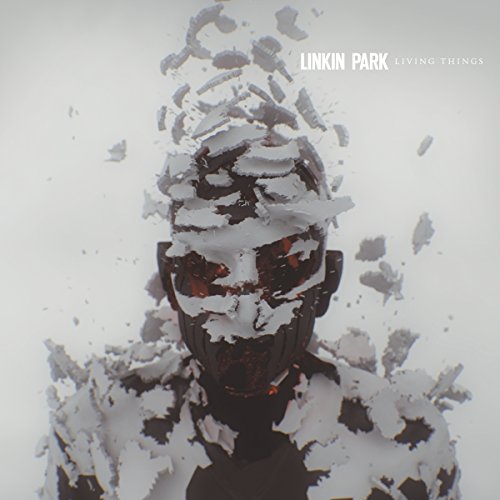
Linkin Park
Living Things
Release Date: Jun 26, 2012
Genre(s): Pop/Rock, Alternative Metal, Heavy Metal, Pop-Metal
Record label: Warner Bros.
Music Critic Score
How the Music Critic Score works
Buy Living Things from Amazon
Album Review: Living Things by Linkin Park
Satisfactory, Based on 10 Critics
Based on rating 5/5
Linkin Park showed up to the rap-rock mixer late, but they were the first band with a DJ to sound so utterly alienated, hitching Chester Bennington's existential wail to the suburban swagger of Mike Shinoda's rhymes. Five LPs in, they've traded turntable scratches for dub-step flourishes, but still lean on Bennington's harrowing hooks, including the one on "Burn It Down," one of their best singles yet. But while they've spiffed up their sound for the dance floor, the band found some of its greatest inspiration in pop-wise hip-hop – "Lies Greed Misery," a sweet-and-sour gem, is guaranteed to make you jump.
Based on rating B
Linkin Park’s fifth album opens with ”Lost in the Echo,” a torrent of hate-your-parents guitars and suburban-ennui boom-bap that could have come from the group’s 2000 debut. Living Things doesn’t totally retreat from 2010’s art-aggro detour A Thousand Suns; bits of noise-pop schizophrenia surface on late-arriving shape-shifters ”Skin to Bone” and ”Until It Breaks.” But what remains is a barrage of cyber-metal elbow jabs, with just enough fluffy new-wave padding to soften the onslaught. B Best Tracks:Skin to BoneRoads Untraveled .
Based on rating 7/10
Linkin Park got pretty moody on 2010's A Thousand Suns, settling into a sulky electronica groove that pretty much screamed "growing pains" to anybody who listened closely. On its 2012 sequel, Living Things, Linkin Park attempts to graft guitars back onto their newly mature musical outlook, and the reintroduction of visceral force certainly helps give this album a pulse lacking on A Thousand Suns. It's hardly a step back to the old angst-ridden rap-rockers of the turn of the millennium, however.
Based on rating 6/10
I’ve never really considered myself a Linkin Park fan; however, as much as I hated to admit it, their last album, A Thousand Suns, completely blew me away. With its conceptual continuity, anthemic prowess, political/apocalyptic overtones, beautiful segues, striking interludes, encompassing melodies, and overall intense emotion, it’s fairly brilliant. In addition, it sparked a bit of an odd paradox — while many loyalists felt it was too different and abstract, just as many outsiders (including me) thought it was a flawed masterpiece.
Based on rating 3/5
"Linkin Park can be as lyrically or sonically adventurous as we want," the band's Mike Shinoda said in these pages last year, after their fourth album A Thousand Suns marked an unlikely metamorphosis from blockbusting nu metal to left-field, electronic, political pop. Such motivations explain the follow-up's opener, Lost in the Echo, which crams Europop, hip-hop and a big screaming chorus into just over three minutes. However, Living Things feels more like consolidation than advancement, perhaps in an attempt to pacify fans alienated by the new direction, while keeping new converts interested, too.
Based on rating 3/5
Having come to prominence as one of the more tuneful exponents of nu-metal at the dawn of the millennium, Linkin Park have spent much of the past decade steadily paddling away from the wreckage of the genre. Living Things builds on the experimentation of 2010's A Thousand Suns, with subtle electronica having largely replaced the abrasive guitars of yore, although they're still canny enough to throw in a decent number of big rock choruses, as on Burn it Down and Lost in the Echo. By refusing to play it safe, they'll further diminish their original fanbase, but such boldness is to be applauded.
Based on rating 2.5/5
Review Summary: Lost in the echo of their glorified past.The problem with Linkin Park in 2012 is quite simple. For all the fanfare that they were showered with early in their career, they have time and again proven themselves to be a one-trick pony. When nu-metal and rap-rock went the way of the dinosaur in the mid-2000’s, Bennington and company found themselves tangled in an identity crisis called Minutes to Midnight, which contained several half-hearted ballads, a few odes to U2, and even a laughable attempt at political commentary.
Based on rating 2.5/5
Does the world need Linkin Park to “go country”? No, and no-one knows this better than the band themselves; thus, their foray into said genre here is restricted to the three minutes of ‘Castle Of Glass’. The rest is… well, to be fair, they’ve obviously been listening to a bit of Skrillex, and thus the heavy guitar thud of yore has been replaced by a new, heavy electronic thud, but that aside it’s largely the usual semi-hilarious histrionica to which we’ve become accustomed, with songs called ‘Lies Greed Misery’, ‘Powerless’ ‘Scream If You’re In Pain’ and ‘Victimized’. I made one of those up, but can you guess which? Thought not.[i]Hamish MacBain[/i] .
Based on rating F
Linkin Park’s two previous full-length albums are almost nothing alike. Where 2007’s Minutes To Midnight catered toward new children of modern rock radio aggression, 2010’s polarizing A Thousand Suns presented thematic depth and textured music punctuated by (albeit commonplace) political ideals, thus earning substantial critical praise for the band’s overall evolution. Few critics expected such success from the rap rock outfit, and even fewer expected an expansion on that success, but hardly anyone (outside of anti-LP skeptics) could have anticipated pure disaster to come — as it happens, 2012’s Living Things somehow unequivocally proves cutting room floors have brooms for a reason.
Opinion: Average
Californian mash-masters return with a suitably state-of-the-art album. Ian Winwood 2012 In 2010, without anyone really noticing, Linkin Park released one of the most innovative and astounding albums of the year. A Thousand Suns was not so much a collection of songs as a tapestry of sound that sometimes veered, sometimes glided, between the confrontational agit-pop of Public Enemy and sombre, expectations-eschewing acoustic selections.
'Living Things'
is available now

